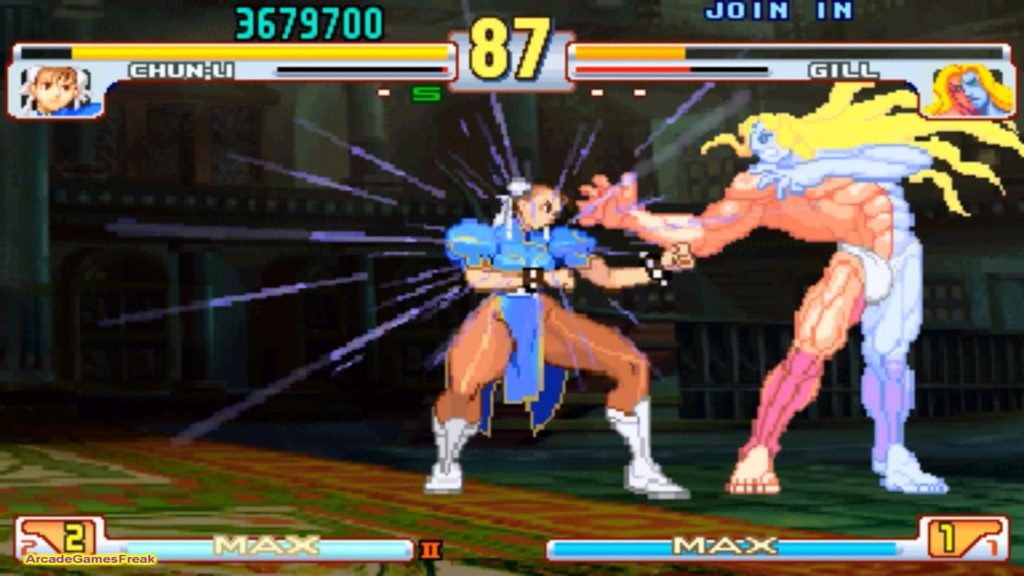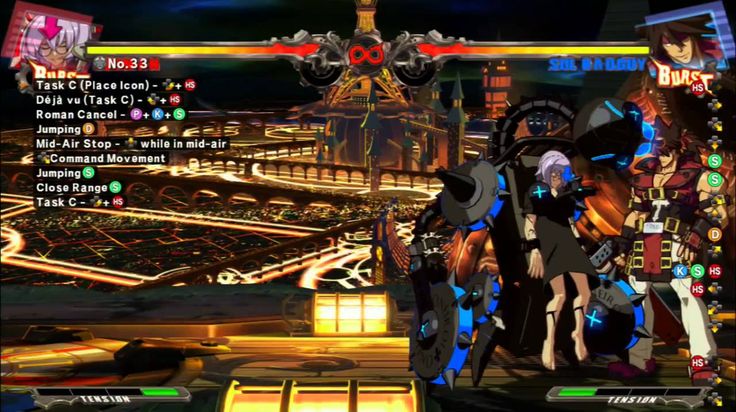Part 1
Allow me to demonstrate:
Competitive video games take a lot of work to become half decent. You need to understand the game’s mechanics, find out when/where to do specific things, and then also develop the muscle memory necessary to actually perform those things when the time comes. In pretty much any venture like this, it takes dedication and hard work.
Most beginners think using the flashiest moves will make you win, or that throwing out whatever towards your opponent will trick them into taking huge amounts of damage. It doesn’t work that way. For one, you’ll get blown up for even trying certain unsafe moves with certain characters. For another, the flashiest moves aren’t necessarily the best. To use examples that are familiar to me, think Chun-Li in Street Fighter III: 3rd Strike. Her most imposing and dangerous weapon came from crouching MK rather than anything else. Why? Not only did the game give this simple crouching normal an incredible speed and frame advantage, but it could cancel directly into Chun-Li’s best super art (number two, if I’m thinking correctly, or Houyokusen). Ever other character in Third Strike, including top tier wonder Yun, needed to counter or avoid this one devastating move altogether to avoid their own defeat.

However, the c.MK wouldn’t exist as a threat without a super combo linked after it. You need the speed, quickness, and proper timing to buffer two quarter circle motion into the kick move and then press punch. That seems an insurmountable task to the lot of us, especially if you’re not using a joystick, and ESPECIALLY not under the pressure of a competitive tournament situation. You can imagine that takes a lot of practice! However, even with all that practice, sometimes the move just doesn’t come out in a pressure situation. You just sorta hit them with one move, and then the super doesn’t come out.
Why does this happen? The game isn’t messing with you; you messed up instead! While developing muscle memory in order to execute on point sounds easy, it’s not. Training modes and vs. AI matches give you a perfect testing ground to figure out the buttons required to attack, but they don’t automatically lead to perfect execution in the heat of the moment. You will mess up; that’s just a fact of life. And sometimes, failing to hit that damaging combos leads to a loss, which is also your fault. I can’t say that constitutes an enjoyable experience of any kind, but you will experience it regardless.

Or maybe you’ll play someone, and they do something you can’t counter at all. This happens all the time in any competitive game – a new strategy, a movement you haven’t seen, a setup you can’t escape, a build order that creates the mother of all zerg rushes, or maybe that guy is just really good with a pistol. Our first response is often to call that “cheap” – but does that really describe what’s happening, or does that simply reveal our inadequacy at the game? Many people believed throws were not an “honorable” way to play Street Fighter II, and yet they remain in nearly every fighting game I can think of. More than likely, the designers found that they needed a third way between attacking and blocking. How can it be cheap if it’s in the game? Seth Killian is much better at explaining this than me:
When you claim something is “cheap”, what you’re really saying is that the game would be better without it. In effect, you’re staking your judgment against the combined efforts of the best design team in history. Sometimes people can be right about such judgments, as in the case of obvious bugs/glitches (e.g. resets, L/M-ism A3 bugs, etc). Why are these obvious candidates? Because they weren’t things that were intended or assessed by this designers, so they don’t already have their tacit stamp of approval. And, unsurprisingly, they tend to detract from gameplay (though this isn’t always the case, of course- interrupting normal moves with specials for combos wasn’t originally intended in SF2: WW, but turned out to be a happy accident that evolved into the world’s most-loved combo system). The best way to tell whether something helps or ultimately hurts a game is to play the hell out of it. If it really turns out to detract from gameplay, then avoid it- fine. But you’ll never be able to decide that if you don’t play it to the fullest to begin with. – something people fond of denouncing things as “cheap” never seem to do. Does this mean I think that everything that was intended by the designers is necessarily a good idea? No. But it should be a hint to scrubs that maybe they should play around with that aspect a bit more before deciding it’s “cheap”, and writing it off. Especially if you want to have a chance at winning in a tournament, or against real players. Remember- when you claim something is “cheap”, especially if it’s something the designers clearly intended to be there, you’re attempting a very sophisticated judgment. Since most of you are morons, this is usually a very bad idea.
So the real solution, I think, is not to avoid your failures – rather, attack them head-on. Figure out what you did wrong. Learn from the experience. If you get to play many matches in a row with the same person in whatever game, figure out what they’re doing and figure out how to counter it. You will fail and stumble repeatedly along the way. Sometimes, moves won’t come out, strategies will not coalesce, and you will simply lose. That is simply the way of things. But, via the process of self-examination and improvement, you will learn a lot and come out better for it in the long run. The big picture, in this case, turns out to be a continual path towards being the best you can be, at any competitive game. Refuse to blame your defeats on anyone but yourself – how can you learn otherwise?
Some lessons, and especially faith, do take us through valleys we would rather not traverse, or force us to expend effort we would rather not expend. But that does not mean it isn’t necessary for us to experience these things. Moses encounters opposition almost immediately; God tells Him this will happen, and yet Moses immediately responds with worry and anxiety that God didn’t help the Israelites immediately. God isn’t a vending machine – God’s a person, and a person chooses His time and place to do what He wills. Our stumbles and mistakes along the way are lessons where we can learn.
Obviously, Moses learns this eventually – the Israelites, probably not so much. But taking a wide look at the big picture can work wonders for making the day-to-day manageable.
